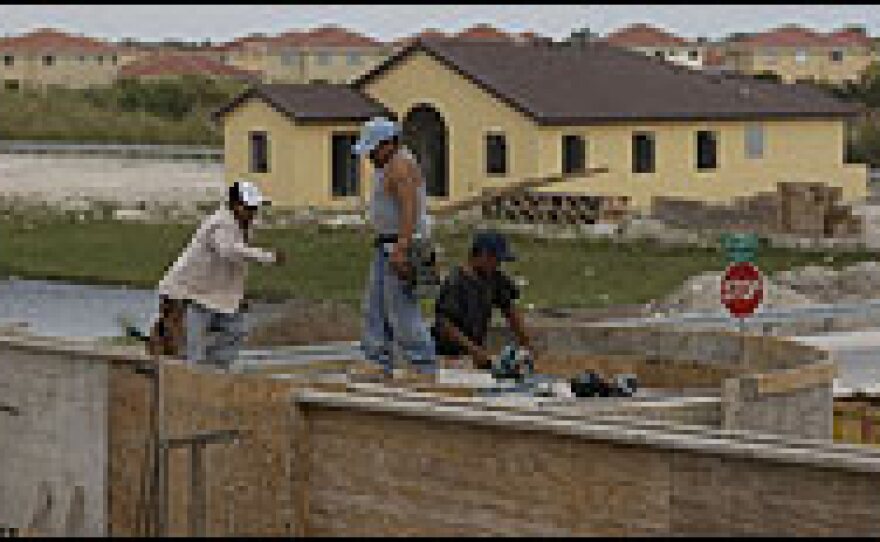
Florida's presidential primary is on Tuesday, but the state's residents have been voting for nearly two weeks already by mailing in absentee ballots and visiting special early voting sites across the state.
In Miami-Dade County last week, Angel Alamager dropped into Coral Reef Library to cast his vote for Republican candidate and former New York Mayor Rudolph Giuliani. Alamager's main concern was the economy, particularly the downturn in the housing market.
Polls show the economy tops the list of concerns among Republicans and Democrats alike, as they consider whom to nominate for president. That's certainly the case in Florida, which ranks second in the nation behind California in the number of foreclosures. This housing slump hits a state that is already facing big challenges.
Following the hurricanes of 2004 and 2005, homeowner's insurance skyrocketed. At the same time, property taxes rose dramatically — making homes unaffordable in even modest neighborhoods.
What has made the property tax issue especially problematic in Florida is an amendment to the state constitution passed more than a decade ago that limited increases in property tax assessments to 3 percent a year for longtime homeowners. It has shifted an increasing share of the tax burden onto new residents, first-time homeowners and owners of commercial property. A referendum aimed at fixing the growing inequity is on the ballot Tuesday.
Efforts to make Florida's other pressing problem part of this election have been less successful. When Florida's Legislature voted last year to move up the state's primary to Jan. 29, one motivation was to build support among presidential candidates for a National Catastrophe Insurance Fund.
The fund would help lower insurance costs for homeowners in high-risk coastal areas. Politicians hoped to make it Florida's version of ethanol: a parochial issue that presidential candidates would have to embrace as they campaigned in the state's early primary. But it hasn't quite turned out that way.
Following his victory in South Carolina, Arizona Sen. John McCain is in a neck-and-neck race with rival GOP hopeful Mitt Romney, the former governor of Massachusetts. Neither candidate has embraced the idea of the fund, although both say they would consider a regional pool that would help spread out the risk.
Giuliani is the one Republican candidate who has endorsed the proposal. He has been running ads in Florida that try to use the issue to his advantage. But even while he's been talking up his support for the CAT fund, Giuliani has watched his poll numbers continue to drop in the state.
Lance DeHaven-Smith, a political science professor at Florida State University, says that the issue of the fund has not resonated with Florida voters. On the other hand, it took Iowa politicians years to build support for ethanol subsidies.
While Republicans are divided on the issue of a national CAT fund, all the leading Democratic presidential candidates support the idea.
The high cost of homeowner's insurance is a main issue in Tuesday's GOP primary in Florida. Giuliani has endorsed the idea of a national catastrophe fund. But other GOP candidates have been discussing the economy in broader terms.
Copyright 2022 NPR. To see more, visit https://www.npr.org. 9(MDAzMjM2NDYzMDEyMzc1Njk5NjAxNzY3OQ001))







